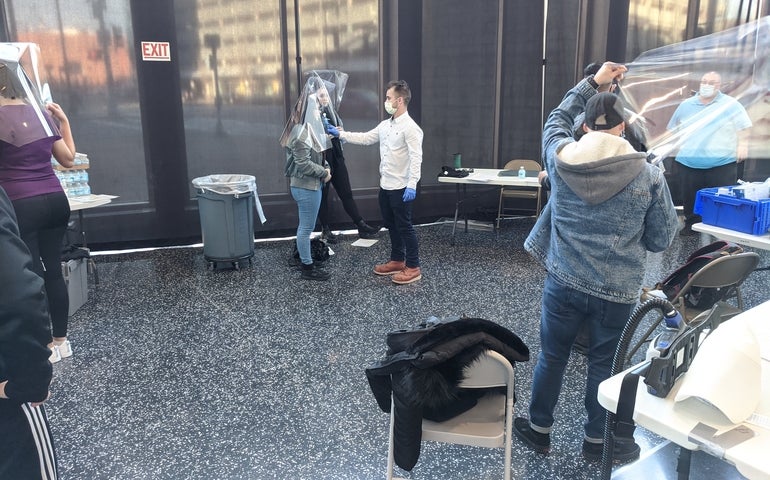Employers may bar employees from the workplace if they do not receive the COVID-19 vaccine, under updated guidance from the U.S. Equal Employment Opportunity Commission, potentially solidifying a question lingering in the minds of both employers and employees for months.
According to the guidance, which was last updated on Wednesday, the COVID-19 vaccine does not constitute a medical examination under the Americans with Disabilities Act, which means issuing the vaccine or asking for proof an employee has received a vaccine, does not constitute an inquiry into that employee’s health status or impairments.
If employees say they are unable to get the vaccine because of a disability and the employer cannot provide reasonable accommodation to eliminate or reduce risk “so the unvaccinated employee does not pose a direct threat,” the employer may ban that person from the workplace, according to the guidance.
Importantly, this doesn’t mean employers may immediately fire that employee.
In turn, if employees say they are unable to get the vaccine because of a religious practice or belief, the employer must provide reasonable accommodation. If the employer can’t provide reasonable accommodations, they may ban that employee from the workplace, as well. Again, that is not grounds for immediate firing.
According to the guidance, employers should generally assume such requests for accommodation are based on sincerely-held beliefs, but if there is “an objective basis for questioning either the religious nature or the sincerity” of said belief, employers may request additional supporting information.
Still, employers must tread carefully, particularly if they or a contractor will be issuing vaccines to employees. The EEOC guidance notes if an employer or contractor is issuing the vaccine, pre-vaccination medical screenings may violate the ADA. Such screen inquiries should be job-related and consistent with business necessity, according to the guidance.
The guidance indicated asking for proof of receiving the COVID-19 vaccine does not implicate Title II of the Genetic Information Nondiscrimination Act, although if pre-vaccine screenings include questions about genetic history, including family medical history, those screenings might.
The EEOC said in such situations, employers may simply want to request proof of vaccine receipt, rather than issuing it themselves.
It’s too early to say whether many employers, particularly those outside of health care or other frontline work, will require vaccines for their employees. That said, the EEOC guidance appears to draw a clear pathway for those employers interested in doing so.

